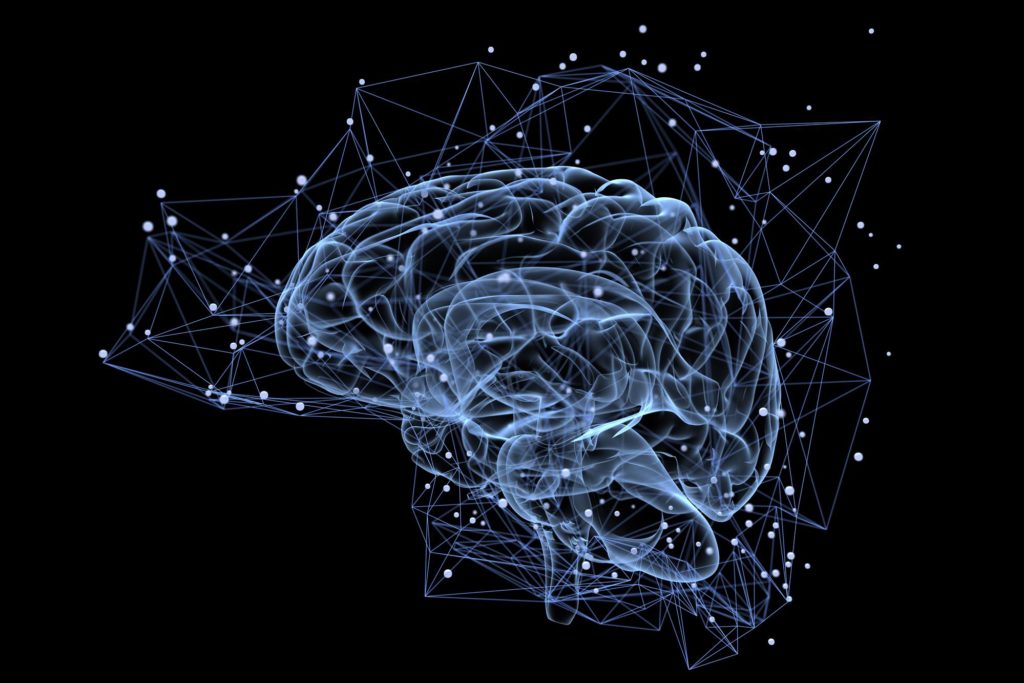Once an Addict, Always an Addict?
When Alcoholics Anonymous co-founder Bill Wilson’s famous “Big Book” was first published in 1939, there was little understanding about the science of addiction. While AA continues to focus on fellowship, group support, and spiritual connectedness as core parts of recovery for millions of people around the world, we’ve come a long way in understanding addiction since those days.
 Today, we know much more about how substances like alcohol, depressants, opiates, and other addictive drugs prone to abuse work on the brain, and about the role genetics plays in addiction. Comprehensive addiction treatment programs are also more widely available—do a quick search online for “drug rehabs near me” and you’re likely to find several in your area.
Today, we know much more about how substances like alcohol, depressants, opiates, and other addictive drugs prone to abuse work on the brain, and about the role genetics plays in addiction. Comprehensive addiction treatment programs are also more widely available—do a quick search online for “drug rehabs near me” and you’re likely to find several in your area.
Yet, while science has advanced our understanding of the root causes of addiction, lingering myths, misconceptions, and partial-truths about addiction are still common. We’ll look at these ahead.
Before we do, let’s look at some statistics on addiction to help illuminate the scope of the problem and its impact on society.
Addiction in the U.S.
The problem of drug and alcohol addiction is enormous in the U.S. The impacts are far reaching, affecting individuals, families, and society at large. Consider the following:
- More than 23 million Americans currently suffer from drug or alcohol dependence or addiction; that’s around 1 in 10 Americans over the age of 12.1
- When tobacco is included, that number rises to 40 million—more than the number of Americans with heart disease, diabetes, and cancer combined.2
- The opioid crisis continues to grow in the U.S.; each day more than 115 people die after overdosing on opioid drugs such as prescription pills, heroin, or fentanyl.3
- Only a fraction of Americans with drug or alcohol addiction (2.6 million, or 11%) receive treatment.1
- The economic impact of drug and alcohol addiction to the U.S. totals more than $520 billion per year, according to NIDA. These costs include those related to lost productivity, health care, and crime.4
We have a long way to go in fully addressing the problem of addiction in the U.S. Doing so will require investment in research to uncover the underlying causes of addiction, its risk factors, and treatments. It will require making rehabilitation more widely available to those who need it.
It’s also important to understand how common myths, misconceptions, and partial truths can undermine progress in addressing and dealing with addiction. Let’s explore.
Misconception: Substance abuse is a moral failing.
In years past, people thought that a person who compulsively drank or used drugs simply lacked willpower or morals. This attitude is less common today, but, unfortunately, it still persists.
In recent years, scientists have come to understand how drugs and alcohol affect the reward centers of the brain (this video discusses how addiction rewires the brain, over time, to tolerate more dopamine, exacerbating drug-seeking behavior).
 Many organizations, including The American Medical Association (AMA), the American Society of Addiction Medicine (ASAM), and the National Institute on Drug Abuse (NIDA) define addiction as a disease—with relapse rates similar to those of other diseases like diabetes and asthma.
Many organizations, including The American Medical Association (AMA), the American Society of Addiction Medicine (ASAM), and the National Institute on Drug Abuse (NIDA) define addiction as a disease—with relapse rates similar to those of other diseases like diabetes and asthma.
According to a report by the American Psychological Association (APA):
“Repeated drug use causes disruptions in the brain’s highly evolved frontal cortex, which regulates cognitive activities such as decision-making, response inhibition, planning and memory.” This, the APA says, can help set the stage for addiction and relapse.5
Furthermore, the APA reports that people who are addicted to drugs may have frontal cortex abnormalities that make them more prone to abusing substances in the first place. There’s also evidence that genetic differences play a role in addiction (more on this later). These things help shed light on why only some users of drugs or alcohol become addicted.
Today, we know that addiction is complex and is not simply a matter of lack of willpower or morality.
Partial truth: There is an “addiction gene.”
Just as some people are genetically vulnerable to developing depression, high blood pressure, or heart disease, genes may also play a role in addiction, but there is no single “addiction gene” or set of genes.
More importantly, your genes are not your destiny. Even a person who is genetically predisposed will not necessarily develop an addiction. Environment, personal experience, and other factors matter. Childhood trauma, neglect, co-occurring mental health disorders (such as anxiety or depression), and even using substances at a young age can all play a role in the development of addiction.
That said, scientists are making strides in identifying genes that may play a role in human addiction.6 These discoveries may help medical researchers develop targeted therapies for addiction that can be used in conjunction with traditional addiction treatment.
Myth: You have to hit “rock bottom.”
There’s a persistent myth that only when a person’s life has spiraled completely out of control—they’ve lost their job, destroyed important relationships, are broke and possibly even homeless—will they recognize the extent of their addiction and seek help. This is nonsense.
It’s true that addiction impairs judgment, but to presume that all people struggling with addiction must reach the point of life or death before they seek help is unhelpful at best and harmful at worst.
For some, the trigger to get help might be much less dramatic than the typical “rock bottom” portrayal—it could be the end of an important relationship, being confronted by a concerned family member, or a bad review at work.
Partial truth: Once an addict, always an addict.
 We call this a partial truth because there is some substance to the claim that people’s addictions don’t simply vanish once they’re sober. Recovery is a lifelong pursuit. Yet, the idea that every day is a struggle to stay sober and that a person in recovery is constantly on the verge of relapse is a broad generalization that simply doesn’t apply across the board.
We call this a partial truth because there is some substance to the claim that people’s addictions don’t simply vanish once they’re sober. Recovery is a lifelong pursuit. Yet, the idea that every day is a struggle to stay sober and that a person in recovery is constantly on the verge of relapse is a broad generalization that simply doesn’t apply across the board.
Addiction occurs on a spectrum, like depression, anxiety, and many other diseases. Some people struggle for years with it and have many relapses before they achieve sustained sobriety. Others may be “functional addicts” (with stable source of income, able to hold down a full-time job, etc.) for a short time before getting clean for good.
The idea that people in recovery are fragile beings always one bad night away from relapse has real personal and legal consequences. People in recovery may face long-term restrictions on driving, they may have a difficult time getting (or restoring) credit, and they may face challenges finding housing or face child custody issues. The stigma is real. As society learns more about addiction, hopefully, this stigma will fade.
Help for Addiction
 If you are or a loved one is suffering from drug or alcohol addiction, there is help and there is hope.
If you are or a loved one is suffering from drug or alcohol addiction, there is help and there is hope.
BlueCrest Recovery Center offers world-class care for people suffering from drug or alcohol addiction. We offer outpatient treatment in a safe, supportive environment for those who have completed detox (when needed).
The highly trained staff at our drug rehab center focuses on providing personalized care designed to address each person’s unique needs. Our services include medication management, individual and group therapy sessions, and treatment for co-occurring disorders, such as depression, anxiety, and PTSD.
If you or someone you love is struggling with substance abuse, we can help. Please call (973) 453-5384 to learn more about our drug and alcohol treatment center in New Jersey.
The path to healing continues at BlueCrest Recovery Center.
Sources:
- https://medlineplus.gov/magazine/issues/spring07/articles/spring07pg14-17.html
- https://www.centeronaddiction.org/addiction
- https://www.drugabuse.gov/drugs-abuse/opioids/opioid-overdose-crisis
- https://www.drugabuse.gov/related-topics/trends-statistics
- https://www.apa.org/monitor/jun01/cogcentral.aspx
- https://www.ncbi.nlm.nih.gov/pmc/articles/PMC2715956/














